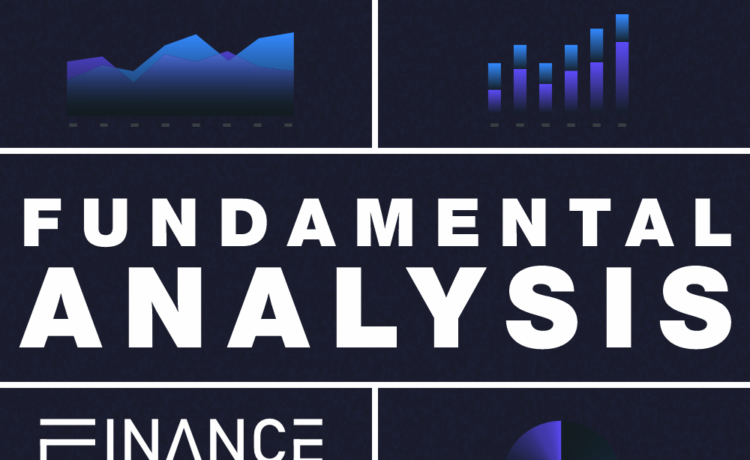US inflation slowed, reducing Fed rate hike pressure, weakening USD. French elections add Eurozone uncertainty, potentially impacting EUR/USD.
- US Inflation and the Federal Reserve:
- Personal Consumption Expenditures (PCE) Price Index: This is the Federal Reserve’s preferred gauge of inflation. It measures the changes in the prices of goods and services that consumers purchase. A lower than expected PCE inflation reading, as seen in this case, indicates that inflation is rising at a slower pace than anticipated.
- Impact on Interest Rates: The Federal Reserve aims to keep inflation at a target level, typically around 2%. If inflation is lower than expected, the Fed may be less likely to raise interest rates in the near future. Higher interest rates tend to attract foreign investment to a country, strengthening its currency. Conversely, lower interest rates tend to make a currency less attractive, potentially weakening it.
- Impact on EUR/USD: In this scenario, weaker US inflation (lower PCE) reduces the pressure on the Fed to raise interest rates. This could weaken the US Dollar (USD) relative to the Euro (EUR), pushing the EUR/USD exchange rate higher.
- US Treasury Yields vs. Eurozone Bond Yields:
- Interest Rate Differential: Treasury yields represent the interest earned on US government bonds. Eurozone bond yields represent the interest earned on bonds issued by Eurozone governments. When US Treasury yields are higher than Eurozone bond yields, it can incentivize investors to purchase US bonds for potentially higher returns. This increased demand for US dollars can strengthen the USD relative to the EUR.
- Current Situation: The report mentions that US Treasury yields declined slightly after the PCE data release. This could lessen the upward pressure on the USD from the interest rate differential.
- Impact on EUR/USD: If US Treasury yields remain lower than Eurozone bond yields in the future, it could put downward pressure on the EUR/USD exchange rate by making the Euro more attractive to investors seeking higher returns.
- French Elections and Eurozone Uncertainty:
- Investor Confidence: The upcoming French elections on the weekend introduce uncertainty into the Eurozone economic outlook. Investors may be hesitant to invest in the Eurozone until the election results are known. This hesitation could weaken the Euro.
- Potential Outcomes: The outcome of the French elections could impact various aspects of the Eurozone economy, depending on the policies implemented by the new government. Depending on these policies, investor confidence in the Eurozone could be bolstered or weakened.
- Impact on EUR/USD: The uncertainty surrounding the French elections creates a risk factor for the Euro. If the election results lead to a decline in investor confidence in the Eurozone, the EUR/USD exchange rate could weaken.
Top 10 Economic News for next week:
–Legislative Election (EUR) – 06/30/2024**: This is the most impactful event, potentially causing high volatility in the Euro (EUR) exchange rate. The outcome of the election could significantly influence investor confidence in the Eurozone economy. A positive outcome could strengthen the Euro, while a negative outcome could weaken it.
–NBS Manufacturing PMI (CNY) – 06/30/2024 01:30**: This event measures the performance of the Chinese manufacturing sector, causing high volatility in the Chinese yuan (CNY). A higher-than-expected PMI indicates economic expansion and can strengthen the yuan, while a lower-than-expected PMI suggests contraction, potentially weakening the currency.
–NBS Non-Manufacturing PMI (CNY) – 06/30/2024 01:30**: This high-impact event assesses the service sector in China, influencing the Chinese yuan (CNY). A strong PMI reading can boost investor confidence and strengthen the yuan, while a weak reading might lead to a depreciation of the currency.
–Tankan Large Manufacturing Index (JPY) – 06/30/2024 23:50**: This index measures business sentiment among large manufacturers in Japan, causing high volatility in the Japanese yen (JPY). A positive sentiment can lead to a stronger yen, while negative sentiment might weaken the currency.
–Caixin Manufacturing PMI (CNY) – 07/01/2024 01:45**: This PMI provides insights into China’s manufacturing sector, particularly among smaller and private companies. It has a high impact on the Chinese yuan (CNY), with a strong PMI likely boosting the currency and a weak PMI potentially causing it to decline.
–Consumer Price Index (MoM) (EUR) – 07/01/2024 12:00**: This high-impact event measures the monthly change in the price level of consumer goods and services in the Eurozone. It significantly influences the Euro (EUR), with higher-than-expected inflation potentially strengthening the euro and lower-than-expected inflation weakening it.
–Consumer Price Index (YoY) (EUR) – 07/01/2024 12:00**: This annual CPI provides a longer-term view of inflation trends in the Eurozone, impacting the Euro (EUR). Higher-than-expected inflation can lead to a stronger euro, while lower-than-expected inflation might weaken the currency.
–ISM Manufacturing PMI (USD) – 07/01/2024 14:00**: This event assesses the health of the US manufacturing sector, causing high volatility in the US dollar (USD). A strong PMI indicates economic growth and can strengthen the dollar, while a weak PMI suggests contraction and might weaken the currency.
–ECB’s President Lagarde speech (EUR) – 07/01/2024 19:00**: Speeches by the European Central Bank President, Christine Lagarde, are highly impactful, influencing the Euro (EUR). Insights into the ECB’s policy stance and economic outlook can cause significant movements in the euro exchange rate.
–RBA Meeting Minutes (AUD) – 07/02/2024 01:30**: The Reserve Bank of Australia’s meeting minutes provide detailed insights into monetary policy deliberations, impacting the Australian dollar (AUD). Expectations of future policy changes can lead to volatility in the AUD, with hawkish minutes potentially strengthening the currency and dovish minutes weakening it.
The subject matter and the content of this article are solely the views of the author. FinanceFeeds does not bear any legal responsibility for the content of this article and they do not reflect the viewpoint of FinanceFeeds or its editorial staff.
The information does not constitute advice or a recommendation on any course of action and does not take into account your personal circumstances, financial situation, or individual needs. We strongly recommend you seek independent professional advice or conduct your own independent research before acting upon any information contained in this article.





